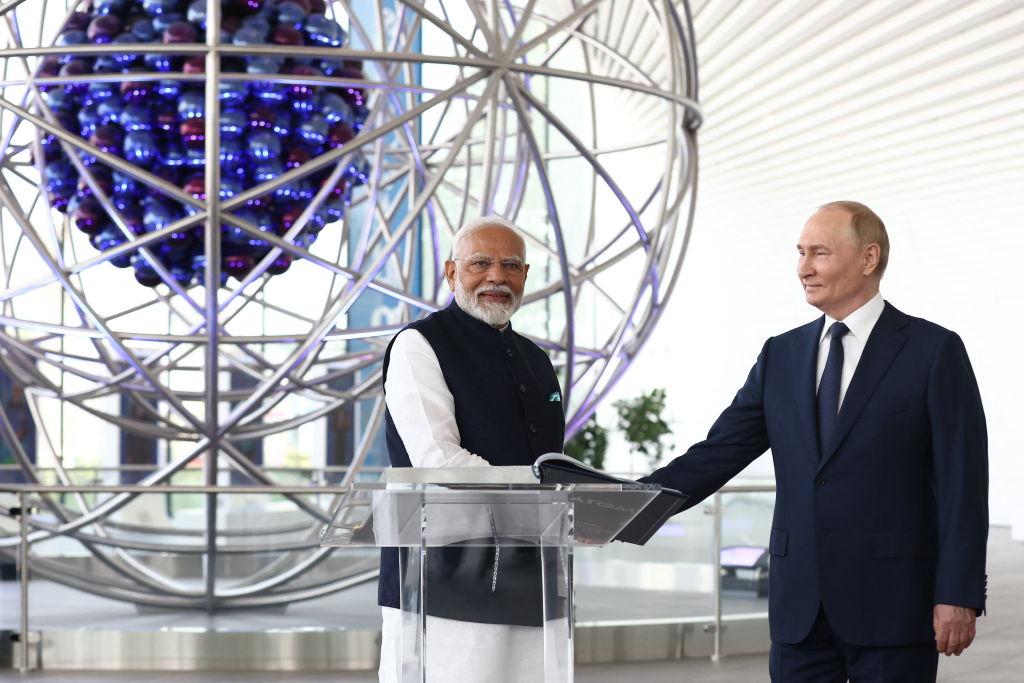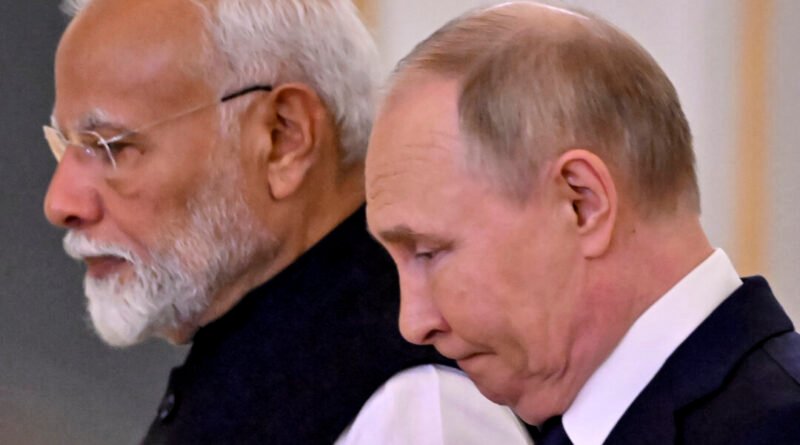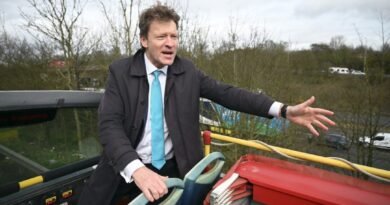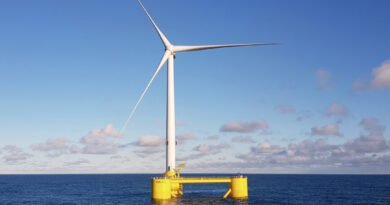Modi’s Visit to Russia Amid Ukraine War and Moscow-China Alliance
The US expressed concerns, while analysts say India aims to counterbalance Russia’s ties to China.
News Analysis
NEW DELHI—India’s Prime Minister Narendra Modi visited Russia July 8–9, in his first state visit since assuming office last month for a third consecutive term.
It was also Mr. Modi’s first trip to Moscow since the start of the Ukraine war. The visit raised questions in the West about India’s stance on the war. On the other hand, analysts said it’s part of a balancing act that aims to keep Russia away from complete reliance on China.
“Prime Minister Modi’s visit to Russia highlights India’s strategic balancing act in maintaining strong ties with Moscow amid increasing relations between Russia and China, the ongoing Ukraine conflict, and shifting global alliances,” according to Nishakant Ojha, a New Delhi-based geopolitical analyst who has served in various foreign missions for India, in an interview with The Epoch Times.
Back in India, five soldiers lost their lives in an ambush by militants in the northern region of Jammu just hours after Mr. Modi arrived in Moscow. The region has seen a recent increase in such attacks.
Amid a complex geo-political situation, India’s strategic partnership with the United States has seen rapid growth, while its relationship with Russia—which has traditionally been New Delhi’s defense partner—has been on a downslide, particularly since the Ukraine war began, analysts say.
“Despite Western efforts to isolate Putin, countries like China, India, and various nations in the Middle East, Africa, and Latin America continue to engage with Russia, with trade figures showing growth,” said Mr. Ojha.
Mr. Modi’s visit to Moscow sparked widespread outrage on social media.
Ukraine’s President Volodymyr Zelenskyy described Modi’s visit as “huge disappointment and a blow to peace efforts.”
Pathikrit Payne, a senior research fellow at the New Delhi-based Dr. Syama Prasad Mokerjee Research Foundation said, from an Indian perspective, Mr. Modi’s visit to Russia doesn’t constitute any kind of messaging for the West.
“Modi went to the G7 Summit even before this visit. However, it is the West that has to come out of the binary mindset that either someone is with them or against them,” Mr. Payne told The Epoch Times.

Calling For an End to War
The West, including the United States,has called on India to condemn Russia for the Ukraine offensive. Although India has refrained from making any such specific statements, it has called for an end to the war.
During his trip to Moscow, without pointing any fingers directly, Mr. Modi called the death of children “heart wrenching.”
“Whether it is war, conflict, or terror attacks, everyone who believes in humanity is pained when there is loss of lives,” said Mr. Modi.
“But when innocent children are killed, when we see innocent children dying, it is heart-wrenching and that pain is immense.”
In speaking of a “terror attack,” Mr. Ojha said Mr. Modi was sending a message to Pakistan, which India accuses of sponsoring terrorism on its soil, including the recent violence in Jammu.
“Possibilities cannot be ruled out for any military operation against Pakistan and enemy countries” in the future, Mr. Ojha said.
Mr. Payne said that “there is convergence between Russia and India on unequivocally condemning all kinds of terrorism.”
Akhil Ramesh, head of the India Program at the Honolulu-based Pacific Forum, told The Epoch Times in an email that there are two aspects of the bilateral relationship at play in the current context: “defense and Cold War era relationships.”
In this context, he said, “India’s relationship with Russia is witnessing a slow death, making it important for Modi to reassure Putin that he is not abandoning the relationship.” The Indian prime minister’s visit, his first in five years, is intended to do just that.
Mr. Ramesh noted that defense ties had underpinned the India–Russia relationship for many decades.
“However, India’s diversification, ‘Make in India’ plans, and Russia’s own challenges with supplying on time due to its war in Ukraine, have made what was supposedly the strongest pillar in Moscow–Delhi ties a weak one,” he said.
Mr. Ojha said that Mr. Modi is navigating a complex relationship with Russia, while at the same time trying to strengthen security ties with Western nations.
“The Ukraine war has intensified scrutiny of India’s ties with Russia, with Western allies urging India to condemn the invasion and pressure the Kremlin,” he said.
“We would urge India, as we do any country when it engages with Russia, to make clear that any resolution to the conflict in Ukraine needs to be one that respects the UN charter, that respects Ukraine’s territorial integrity, Ukraine’s sovereignty,” Miller said.
Mr. Payne noted that India “remains as perhaps” the only crucial nation maintaining a functional relationship with both Russia and the West.
Thus, “it can act as a bridge if the need arises,” he said.





